- Home
- Nora Roberts
The Law is a Lady Page 7
The Law is a Lady Read online
Page 7
“Mother.”
Surprised, Helen turned. She didn’t gasp or whirl at the intrusion, but simply faced Tory with one brow slightly lifted. “Tory. I thought I heard a car drive away.”
“It was someone else.”
“I saw you ride out.” Helen straightened the paper meticulously. “There’s lemonade in the refrigerator. It’s a dry day.” Without speaking, Tory fetched two glasses and added ice. “How are you, Tory?”
“Very well.” She hated the stiffness but could do nothing about it. So much stood between them. Even as she poured the fresh lemonade from her mother’s marigold-trimmed glass pitcher, she could remember the night of her father’s death, the ugly words she had spoken, the ugly feelings she had not quite put to rest. They had never understood each other, never been close, but that night had brought a gap between them that neither knew how to bridge. It only seemed to grow wider with time.
Needing to break the silence, Tory spoke as she replaced the pitcher in the refrigerator. “Do you know anything about the Swansons?”
“The Swansons?” The question in Helen’s voice was mild. She would never have asked directly. “They’ve lived outside of town for twenty years. They keep to themselves, though she’s come to church a few times. I believe he has a difficult time making his ranch pay. The oldest son was a good-looking boy, about sixteen when he left.” Helen replaced her everyday dishes on the shelf in tidy stacks, then closed the cupboard door. “That would have been about four years ago. The younger one seems rather sweet and painfully shy.”
“Tod,” Tory murmured.
“Yes.” Helen read the concern but knew nothing about drawing people out, particularly her daughter. “I heard about Mr. Hollister’s window.”
Tory lifted her eyes briefly. Her mother’s were a calm, deep brown. “The Kramer twins.”
A suggestion of a smile flickered on her mother’s lips. “Yes, of course.”
“Do you know why the older Swanson boy left home?”
Helen picked up the drink Tory had poured her. But she didn’t sit. “Rumor is that Mr. Swanson has a temper. Gossip is never reliable,” she added before she drank.
“And often based in fact,” Tory countered.
They fell into one of the stretches of silence that characteristically occurred during their visits. The refrigerator gave a loud click and began to hum. Helen carefully wiped away the ring of moisture her glass had made on the countertop.
“It seems Friendly is about to be immortalized on film,” Tory began. At her mother’s puzzled look she continued. “I had Phillip C. Kincaid in a cell overnight. Now it appears he’s going to use Friendly as one of the location shoots for his latest film.”
“Kincaid,” Helen repeated, searching her mind slowly. “Oh, Marshall Kincaid’s son.”
Tory grinned despite herself. She didn’t think Phil would appreciate that sort of recognition; it occurred to her simultaneously that it was a tag he must have fought all of his professional career. “Yes,” she agreed thoughtfully. “He’s a very successful director,” she found herself saying, almost in defense, “with an impressive string of hits. He’s been nominated for an Oscar three times.”
Though Helen digested this, her thoughts were still on Tory’s original statement. “Did you say you had him in jail?”
Tory shook off the mood and smiled a little. “Yes, I did. Traffic violation,” she added with a shrug. “It got a little complicated. . . .” Her voice trailed off as she remembered that stunning moment in his cell when his mouth had taken hers. “He’s coming back,” she murmured.
“To make a film?” Helen prompted, puzzled by her daughter’s bemused expression.
“What? Yes,” Tory said quickly. “Yes, he’s going to do some filming here, I don’t have the details yet. It seems he cleared it with the mayor this morning.”
But not with you, Helen thought, but didn’t say so. “How interesting.”
“We’ll see,” Tory muttered. Suddenly restless, she rose to pace to the sink. The view from the window was simply a long stretch of barren ground that was somehow fascinating. Her father had loved it for what it was—stark and desolate.
Watching her daughter, Helen could remember her husband standing exactly the same way, looking out with exactly the same expression. She felt an intolerable wave of grief and controlled it. “Friendly will be buzzing about this for quite some time,” she said briskly.
“It’ll buzz all right,” Tory muttered. But no one will think of the complications, she added to herself.
“Do you expect trouble?” her mother asked.
“I’ll handle it.”
“Always so sure of yourself, Tory.”
Tory’s shoulders stiffened automatically. “Am I, Mother?” Turning, she found her mother’s eyes, calm and direct, on her. They had been just that calm, and just that direct, when she had told Tory she had requested her father’s regulator be unplugged. Tory had seen no sorrow, no regret or indecision. There had been only the passive face and the matter-of-fact words. For that, more than anything else, Tory had never forgiven her.
As they watched each other in the sun-washed kitchen, each remembered clearly the garishly lit waiting room that smelled of old cigarettes and sweat. Each remembered the monotonous hum of the air conditioner and the click of feet on tile in the corridor outside. . .
“No!” Tory had whispered the word, then shouted it. “No, you can’t! You can’t just let him die!”
“He’s already gone, Tory,” Helen had said flatly. “You have to accept it.”
“No!” After weeks of seeing her father lying motionless with a machine pumping oxygen into his body, Tory had been crazy with grief and fear. She had been a long, long way from acceptance. She’d watched her mother sit calmly while she had paced—watched her sip tea while her own stomach had revolted at the thought of food. Brain-dead. The phrase had made her violently ill. It was she who had wept uncontrollably at her father’s bedside while Helen had stood dry-eyed.
“You don’t care,” Tory had accused. “It’s easier for you this way. You can go back to your precious routine and not be disturbed.”
Helen had looked at her daughter’s ravaged face and nodded. “It is easier this way.”
“I won’t let you.” Desperate, Tory had pushed her hands through her hair and tried to think. “There are ways to stop you. I’ll get a court order, and—”
“It’s already done,” Helen had told her quietly.
All the color had drained from Tory’s face, just as she had felt all the strength drain from her body. Her father was dead. At the flick of a switch he was dead. Her mother had flicked the switch. “You killed him.”
Helen hadn’t winced or shrunk from the words. “You know better than that, Tory.”
“If you’d loved him—if you’d loved him, you couldn’t have done this.”
“And your kind of love would have him strapped to that machine, helpless and empty.”
“Alive!” Tory had tossed back, letting hate wash over the unbearable grief. “Damn you, he was still alive.”
“Gone,” Helen had countered, never raising her voice. “He’d been gone for days. For weeks, really. It’s time you dealt with it.”
“It’s so easy for you, isn’t it?” Tory had forced back the tears because she had wanted—needed—to meet her mother on her own terms. “Nothing—no one—has ever managed to make you feel. Not even him.”
“There are different kinds of love, Tory,” Helen returned stiffly. “You’ve never understood anything but your own way.”
“Love?” Tory had gripped her hands tightly together to keep from striking out. “I’ve never seen you show anyone love. Now Dad’s gone, but you don’t cry. You don’t mourn. You’ll go home and hang out the wash because nothing—by God, nothing—can interfere with your precious routine.”
Helen’s shoulders had been very straight as she faced her daughter. “I won’t apologize for being what I am,” she had said. “Any
more than I expect you to defend yourself to me. But I do say you loved your father too much, Victoria. For that I’m sorry.”
Tory had wrapped her arms around herself tightly, unconsciously rocking. “Oh, you’re so cold,” she had whispered. “So cold. You have no feelings.” She had badly needed comfort then, a word, an arm around her. But Helen was unable to offer, Tory unable to ask. “You did this,” she had said in a strained, husky voice. “You took him from me. I’ll never forgive you for it.”
“No.” Helen had nodded slightly. “I don’t expect you will. You’re always so sure of yourself, Tory.”
Now the two women watched each other across a new grave: dry-eyed, expressionless. A man who had been husband and father stood between them still. Words threatened to pour out again—harsh, bitter words. Each swallowed them.
“I have to get back to town,” Tory told her. She walked from the room and from the house. After standing in the silence a moment, Helen turned back to her shelves.
***
The pool was shaped like a crescent and its water was deep, deep blue. There were palm trees swaying gently in the night air. The scent of flowers was strong, almost tropical. It was a cool spot, secluded by trees, banked with blossoming bushes. A narrow terrace outlined the pool with mosaic tile that glimmered in the moonlight. Speakers had been craftily camouflaged so that the strains of Debussy seemed to float out of the air. A tall iced drink laced with Jamaican rum sat on a glass-topped patio table beside a telephone.
Still wet from his swim, Phil lounged on a chaise. Once again he tried to discipline his mind. He’d spent the entire day filming two key scenes in the studio. He’d had a little trouble with Sam Dressier, the leading man. It wasn’t surprising. Dressier didn’t have a reputation for being congenial or cooperative, just for being good. Phil wasn’t looking to make a lifelong friendship, just a film. Still, when the clashes began this early in a production, it wasn’t a good omen of things to come. He was going to have to use some strategy in handling Dressier.
At least, Phil mused as he absently picked up his drink, he’d have no trouble with the crew. He’d hand-picked them and had worked with each and every one of them before. Bicks, his cinematographer, was the best in the business—creative enough to be innovative and practical enough not to insist on making a statement with each frame. His assistant director was a workhorse who knew the way Phil’s mind worked. Phil knew his crew down to the last gaffer and grip. When they went on location . . .
Phil’s thoughts drifted back to Tory, as they had insisted on doing for days. She was going to be pretty stiff-necked about having her town invaded, he reflected. She’d hang over his shoulder with that tin badge pinned to her shirt. Phil hated to admit that the idea appealed to him. With a little pre-planning, he could find a number of ways to put himself in her path. Oh, yes, he intended to spend quite a bit of time getting under Sheriff Ashton’s skin.
Soft, smooth skin, Phil remembered, that smelled faintly of something that a man might find in a harem. Dark, dusky, and titillating. He could picture her in silk, something chic and vivid, with nothing underneath but that long, lean body of hers.
The quick flash of desire annoyed him enough to cause him to toss back half his drink. He intended to get under her skin, but he didn’t intend for it to work the other way around. He knew women, how to please them, charm them. He also knew how to avoid the complication of one woman. There was safety in numbers; using that maxim, Phil had enjoyed his share of women.
He liked them not only sexually but as companions. A great many of the women whose names he had been romantically linked with were simply friends. The number of women he had been credited with conquering amused him. He could hardly have worked the kind of schedule he imposed on himself if he spent all his time in the bedroom. Still, he had enjoyed perhaps a bit more than his share of romances, always careful to keep the tone light and the rules plain. He intended to do exactly the same thing with Tory.
It might be true that she was on his mind a great deal more often than any other woman in his memory. It might be true that he had been affected more deeply by her than anyone else. But . . .
Phil frowned over the but a moment. But, he reaffirmed, it was just because their meeting had been unique. The memory of his night in the steamy little cell caused him to grimace. He hadn’t paid her back for that yet, and he was determined to. He hadn’t cared for being under someone else’s control. He’d grown used to deference in his life, a respect that had come first through his parents and then through his own talent. He never thought much about money. The fact that he hadn’t been able to buy himself out of the cell was infuriating. Though more often than not he did for himself, he was accustomed to servants—perhaps more to having his word obeyed. Tory hadn’t done what he ordered, and had done what he asked only when it had suited her.
It didn’t matter that Phil was annoyed when people fawned over him or catered to him. That was what he was used to. Instead of fawning, Tory had been lightly disdainful, had tossed out a compliment on his work, then laughed at him. And had made him laugh, he remembered.
He wanted to know more about her. For days he had toyed with the notion of having someone check into Victoria L. Ashton, Attorney. What had stopped him had not been a respect for privacy so much as a desire to make the discoveries himself. Who was a woman who had a face like a madonna, a voice like whiskey and honey, and handled a .45? Phil was going to find out if it took all of the dry, dusty summer. He’d find the time, he mused, although the shooting schedule was backbreaking.
Leaning back against the cushion of the chaise, Phil looked up at the sky. He’d refused the invitation to a party on the excuse that he had work and a scene to shoot early in the morning. Now he was thinking of Tory instead of the film, and he no longer had any sense of time. He knew he should work her out of his system so that he could give the film his full attention, without distractions. He knew he wouldn’t. Since he’d returned from Friendly, he hadn’t had the least inclination to pick up the phone and call any of the women he knew. He could pacify friends and acquaintances by using the excuse of his work schedule, but he knew. There was only one companion he wanted at the moment, one woman. One lover.
He wanted to kiss her again to be certain he hadn’t imagined the emotions he had felt. And the sense of rightness. Oddly, he found he didn’t want to dilute the sensation with the taste or feel of another woman. It worried him but he brushed it off, telling himself that the obsession would fade once he had Tory where he wanted her. What worried him more was the fact that he wanted to talk to her. Just talk.
Vaguely disturbed, Phil rose. He was tired, that was all. And there was that new script to read before he went to bed. The house was silent when he entered through the glass terrace doors. Even the music had stopped without his noticing. He stepped down into the sunken living room, the glass still in his hand.
The room smelled very faintly of the lemon oil the maid had used that morning. The maroon floor tiles shone. On the deep, plump cushions of the sofa a dozen pillows were tossed with a carelessness that was both inviting and lush. He himself had chosen the tones of blue and green and ivory that dominated the room, as well as the Impressionist painting on the wall, the only artwork in the room. There were mirrors and large expanses of windows that gave the room openness. It held nothing of the opulence of the houses he had grown up in, yet maintained the same ambience of money and success. Phil was easy with it, as he was with his life, himself, and his views on his future.
Crossing the room, he walked toward the curving open staircase that led to the second floor. The treads were uncarpeted. His bare feet slapped the wood gently. He was thinking that he had been pleased with the rushes. He and Huffman had watched them together. Now that the filming was progressing, his producer was more amiable. There were fewer mutterings about guarantors and cost overruns. And Huffman had been pleased with the idea of shooting the bulk of the film on location. Financially the deal with Friendly had been a
dvantageous. Nothing put a smile on a producer’s face quicker, Phil thought wryly. He went to shower.
The bath was enormous. Even more than the secluded location, it had been Phil’s main incentive for buying the house high in the hills. The shower ran along one wall, with the spray shooting from both sides. He switched it on, stripping out of his trunks while the bathroom grew steamy. Even as he stepped inside, he remembered the cramped little stall he had showered in that stifling morning in Friendly.
The soap had still been wet, he recalled, from Tory. It had been a curiously intimate feeling to rub the small cake along his own skin and imagine it sliding over hers. Then he had run out of hot water while he was still covered with lather. He’d cursed her fluently and wanted her outrageously. Standing between the hot crisscrossing sprays, Phil knew he still did. On impulse he reached out and grabbed the phone that hung on the wall beside the shower.
“I want to place a call to Friendly, New Mexico,” he told the operator. Ignoring the time, he decided to take a chance. “The sheriff’s office.” Phil waited while steam rose from the shower. The phone clicked and hummed, then rang.
“Sheriff’s office.”
The sound of her voice made him grin. “Sheriff.”
Tory frowned, setting down the coffee that was keeping her awake over the brief she was drafting. “Yes?”
“Phil Kincaid.”
There was complete silence as Tory’s mouth opened and closed. She felt a thrill she considered ridiculously juvenile and straightened at her desk. “Well,” she said lightly, “did you forget your toothbrush?”
“No.” He was at a loss for a moment, struggling to formulate a reasonable excuse for the call. He wasn’t a love-struck teenager who called his girl just to hear her voice. “The shooting’s on schedule,” he told her, thinking fast. “We’ll be in Friendly next week. I wanted to be certain there were no problems.”
Tory glanced over at the cell, remembering how he had looked standing there. “Your location manager has been in touch with me and the mayor,” she said, deliberately turning her eyes away from the cell. “You have all the necessary permits. The hotel’s booked for you. I had to fight to keep my own room. Several people are making arrangements to rent out rooms in their homes to accommodate you.” She didn’t have to add that the idea didn’t appeal to her. Her tone told him everything. Again he found himself grinning.

 A Little Magic
A Little Magic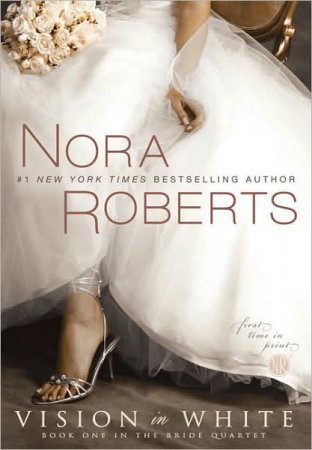 Vision in White
Vision in White True Betrayals
True Betrayals The Next Always
The Next Always A Man for Amanda
A Man for Amanda Born in Fire
Born in Fire Tribute
Tribute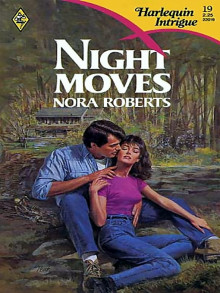 Night Moves
Night Moves Dance Upon the Air
Dance Upon the Air The Name of the Game
The Name of the Game Jewels of the Sun
Jewels of the Sun River's End
River's End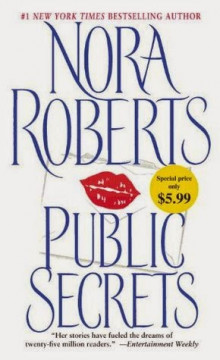 Public Secrets
Public Secrets Homeport
Homeport Private Scandals
Private Scandals The Witness
The Witness Blithe Images
Blithe Images Hidden Riches
Hidden Riches Key of Light
Key of Light Divine Evil
Divine Evil High Noon
High Noon Blue Dahlia
Blue Dahlia Sea Swept
Sea Swept This Magic Moment
This Magic Moment Year One
Year One A Little Fate
A Little Fate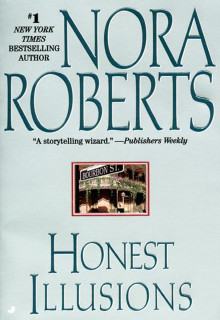 Honest Illusions
Honest Illusions The Reef
The Reef Shelter in Place
Shelter in Place The Hollow
The Hollow Holding the Dream
Holding the Dream The Pagan Stone
The Pagan Stone Savour the Moment
Savour the Moment The Perfect Hope
The Perfect Hope Island of Glass
Island of Glass Happy Ever After
Happy Ever After Bed of Roses
Bed of Roses Stars of Fortune
Stars of Fortune Dark Witch
Dark Witch The Return of Rafe MacKade
The Return of Rafe MacKade Chesapeake Blue
Chesapeake Blue The Perfect Neighbor
The Perfect Neighbor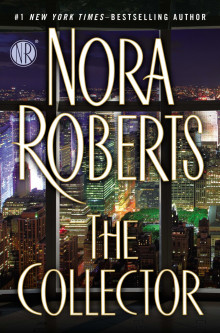 The Collector
The Collector Come Sundown
Come Sundown Rebellion
Rebellion Affaire Royale
Affaire Royale Daring to Dream
Daring to Dream Bay of Sighs
Bay of Sighs Blood Magick
Blood Magick Angels Fall
Angels Fall Captivated
Captivated The Last Boyfriend
The Last Boyfriend Irish Thoroughbred
Irish Thoroughbred Inner Harbor
Inner Harbor The Right Path
The Right Path Night Shadow
Night Shadow The Heart of Devin MacKade
The Heart of Devin MacKade Shadow Spell
Shadow Spell The Playboy Prince
The Playboy Prince The Fall of Shane MacKade
The Fall of Shane MacKade Rising Tides
Rising Tides Command Performance
Command Performance Hidden Star
Hidden Star Cordina's Crown Jewel
Cordina's Crown Jewel The MacGregor Brides
The MacGregor Brides The Pride of Jared MacKade
The Pride of Jared MacKade Born in Ice
Born in Ice Whiskey Beach
Whiskey Beach The Last Honest Woman
The Last Honest Woman Night Shield
Night Shield Born in Shame
Born in Shame Secret Star
Secret Star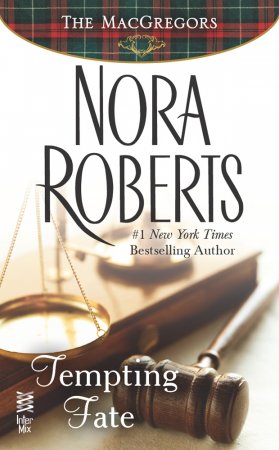 Tempting Fate
Tempting Fate Nightshade
Nightshade The Obsession
The Obsession Night Shift
Night Shift Playing The Odds
Playing The Odds Tears of the Moon
Tears of the Moon One Man's Art
One Man's Art The MacGregor Groom
The MacGregor Groom Irish Rebel
Irish Rebel Morrigan's Cross
Morrigan's Cross In From The Cold
In From The Cold Night Smoke
Night Smoke Finding the Dream
Finding the Dream Red Lily
Red Lily The Liar
The Liar Montana Sky
Montana Sky Heart of the Sea
Heart of the Sea All The Possibilities
All The Possibilities Opposites Attract
Opposites Attract Captive Star
Captive Star The Winning Hand
The Winning Hand Key of Valor
Key of Valor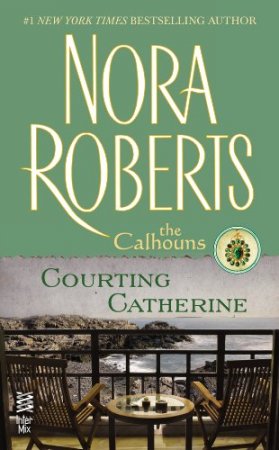 Courting Catherine
Courting Catherine Heaven and Earth
Heaven and Earth Face the Fire
Face the Fire Untamed
Untamed Skin Deep
Skin Deep Enchanted
Enchanted Song of the West
Song of the West Suzanna's Surrender
Suzanna's Surrender Entranced
Entranced Dance of the Gods
Dance of the Gods Key of Knowledge
Key of Knowledge Charmed
Charmed For Now, Forever
For Now, Forever Blood Brothers
Blood Brothers Sweet Revenge
Sweet Revenge Three Fates
Three Fates Mind Over Matter
Mind Over Matter Megan's Mate
Megan's Mate Valley of Silence
Valley of Silence Without A Trace
Without A Trace The Law is a Lady
The Law is a Lady Temptation
Temptation Dance to the Piper
Dance to the Piper Blue Smoke
Blue Smoke Black Hills
Black Hills The Heart's Victory
The Heart's Victory Sullivan's Woman
Sullivan's Woman Genuine Lies
Genuine Lies For the Love of Lilah
For the Love of Lilah Gabriel's Angel
Gabriel's Angel Irish Rose
Irish Rose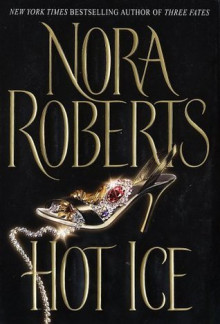 Hot Ice
Hot Ice Dual Image
Dual Image Lawless
Lawless Catch My Heart
Catch My Heart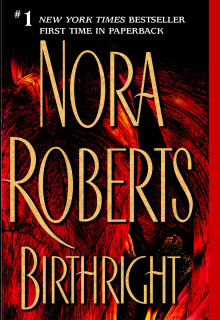 Birthright
Birthright First Impressions
First Impressions Chasing Fire
Chasing Fire Carnal Innocence
Carnal Innocence Best Laid Plans
Best Laid Plans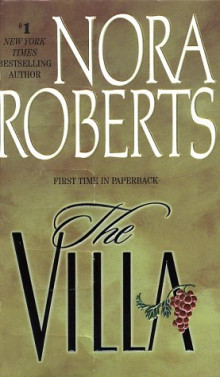 The Villa
The Villa Northern Lights
Northern Lights Local Hero
Local Hero Island of Flowers
Island of Flowers The Welcoming
The Welcoming All I Want for Christmas
All I Want for Christmas Black Rose
Black Rose Hot Rocks
Hot Rocks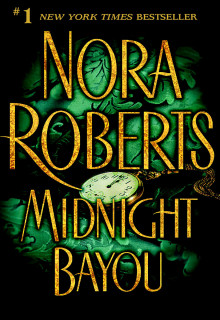 Midnight Bayou
Midnight Bayou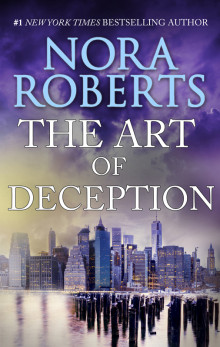 The Art of Deception
The Art of Deception From This Day
From This Day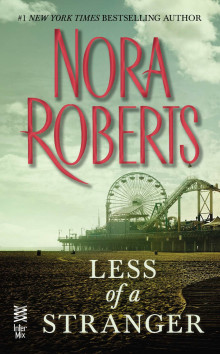 Less of a Stranger
Less of a Stranger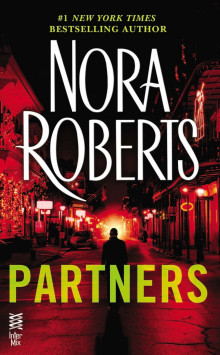 Partners
Partners Storm Warning
Storm Warning Once More With Feeling
Once More With Feeling Her Mother's Keeper
Her Mother's Keeper Sacred Sins
Sacred Sins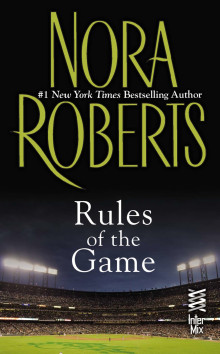 Rules of the Game
Rules of the Game Sanctuary
Sanctuary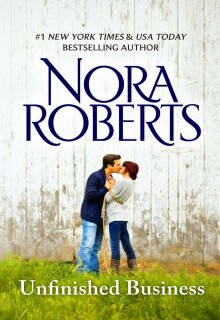 Unfinished Business
Unfinished Business Cordina's Royal Family Collection
Cordina's Royal Family Collection Dangerous Embrace
Dangerous Embrace One Summer
One Summer The Best Mistake
The Best Mistake Boundary Lines
Boundary Lines Under Currents
Under Currents The Stanislaski Series Collection, Volume 1
The Stanislaski Series Collection, Volume 1 The Rise of Magicks
The Rise of Magicks The Rise of Magicks (Chronicles of The One)
The Rise of Magicks (Chronicles of The One) The Awakening: The Dragon Heart Legacy Book 1
The Awakening: The Dragon Heart Legacy Book 1 Dance of Dreams
Dance of Dreams Skin Deep: The O'Hurleys
Skin Deep: The O'Hurleys The Quinn Legacy: Inner Harbor ; Chesapeake Blue
The Quinn Legacy: Inner Harbor ; Chesapeake Blue![[Chronicles of the One 03.0] The Rise of Magicks Read online](http://i1.bookreadfree.com/11/chronicles_of_the_one_03_0_the_rise_of_magicks_preview.jpg) [Chronicles of the One 03.0] The Rise of Magicks
[Chronicles of the One 03.0] The Rise of Magicks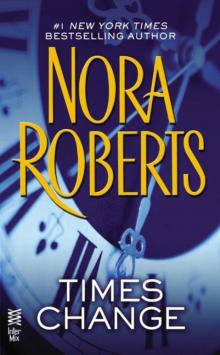 Times Change
Times Change Dance to the Piper: The O'Hurleys
Dance to the Piper: The O'Hurleys Christmas In the Snow: Taming Natasha / Considering Kate
Christmas In the Snow: Taming Natasha / Considering Kate Waiting for Nick
Waiting for Nick Summer Desserts
Summer Desserts Dream 2 - Holding the Dream
Dream 2 - Holding the Dream The Novels of Nora Roberts, Volume 2
The Novels of Nora Roberts, Volume 2 In the Garden Trilogy
In the Garden Trilogy Eight Classic Nora Roberts Romantic Suspense Novels
Eight Classic Nora Roberts Romantic Suspense Novels Best Laid Plans jh-2
Best Laid Plans jh-2 From the Heart
From the Heart Holiday Wishes
Holiday Wishes Dream 1 - Daring to Dream
Dream 1 - Daring to Dream Second Nature
Second Nature Summer Pleasures
Summer Pleasures Once Upon a Castle
Once Upon a Castle Stars of Mithra Box Set: Captive StarHidden StarSecret Star
Stars of Mithra Box Set: Captive StarHidden StarSecret Star Impulse
Impulse The Irish Trilogy by Nora Roberts
The Irish Trilogy by Nora Roberts The Pride Of Jared Mackade tmb-2
The Pride Of Jared Mackade tmb-2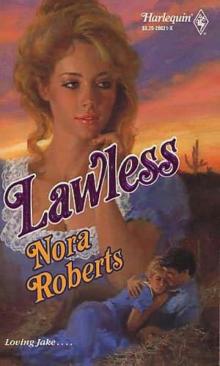 Lawless jh-3
Lawless jh-3 Taming Natasha
Taming Natasha Endless Summer
Endless Summer Bride Quartet Collection
Bride Quartet Collection Happy Ever After tbq-4
Happy Ever After tbq-4 Heart Of The Sea goa-3
Heart Of The Sea goa-3 Search for Love
Search for Love Once upon a Dream
Once upon a Dream Once Upon a Star
Once Upon a Star Dream Trilogy
Dream Trilogy Risky Business
Risky Business The Novels of Nora Roberts, Volume 3
The Novels of Nora Roberts, Volume 3 Dream 3 - Finding the Dream
Dream 3 - Finding the Dream Promises in Death id-34
Promises in Death id-34 The Novels of Nora Roberts, Volume 4
The Novels of Nora Roberts, Volume 4 The Perfect Hope ib-3
The Perfect Hope ib-3 Less than a Stranger
Less than a Stranger Savour the Moment: Now the Big Day Has Finally Arrived, It's Time To...
Savour the Moment: Now the Big Day Has Finally Arrived, It's Time To... Convincing Alex
Convincing Alex Bed of Roses tbq-2
Bed of Roses tbq-2 Savour the Moment tbq-3
Savour the Moment tbq-3 Lessons Learned
Lessons Learned Key Of Valor k-3
Key Of Valor k-3 Red lily gt-3
Red lily gt-3 Savor the Moment
Savor the Moment The Return Of Rafe Mackade tmb-1
The Return Of Rafe Mackade tmb-1 For The Love Of Lilah tcw-3
For The Love Of Lilah tcw-3 Black Rose gt-2
Black Rose gt-2 Novels: The Law is a Lady
Novels: The Law is a Lady Chesapeake Bay Saga 1-4
Chesapeake Bay Saga 1-4 Considering Kate
Considering Kate Moon Shadows
Moon Shadows Key of Knowledge k-2
Key of Knowledge k-2 The Sign of Seven Trilogy
The Sign of Seven Trilogy Once Upon a Kiss
Once Upon a Kiss The Novels of Nora Roberts, Volume 5
The Novels of Nora Roberts, Volume 5 Suzanna's Surrender tcw-4
Suzanna's Surrender tcw-4 The Quinn Brothers
The Quinn Brothers Falling for Rachel
Falling for Rachel Brazen Virtue
Brazen Virtue Time Was
Time Was The Gallaghers of Ardmore Trilogy
The Gallaghers of Ardmore Trilogy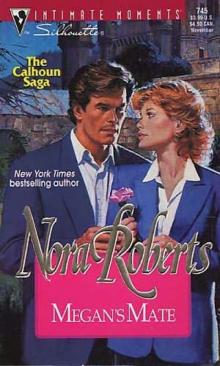 Megan's Mate tcw-5
Megan's Mate tcw-5 Loving Jack jh-1
Loving Jack jh-1 Rebellion & In From The Cold
Rebellion & In From The Cold Blue Dahlia gt-1
Blue Dahlia gt-1 The MacGregor Grooms
The MacGregor Grooms The Next Always tibt-1
The Next Always tibt-1 The Heart Of Devin Mackade tmb-3
The Heart Of Devin Mackade tmb-3 The Novels of Nora Roberts Volume 1
The Novels of Nora Roberts Volume 1 Treasures Lost, Treasures Found
Treasures Lost, Treasures Found Nora Roberts's Circle Trilogy
Nora Roberts's Circle Trilogy The Key Trilogy
The Key Trilogy The Fall Of Shane Mackade tmb-4
The Fall Of Shane Mackade tmb-4 A Will And A Way
A Will And A Way Jewels of the Sun goa-1
Jewels of the Sun goa-1 Luring a Lady
Luring a Lady